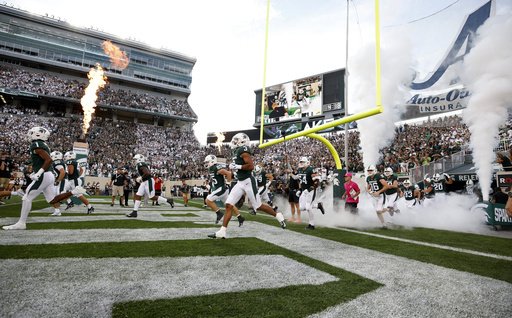Michigan State University is facing a lawsuit over a quiz question about Adolf Hitler that appeared on screens at Spartan Stadium before a game last season. The creator of the quiz, Floris van Pallandt, claims the university did not have permission to use the quiz, which was not intended for mass-market use at a college football game in the United States. Van Pallandt is seeking $150,000 in damages plus legal fees for copyright infringement and claims that his company, Carsilius Media, BV, was subject to disparagement and ridicule due to the public showing of the Hitler question, particularly given the timing of the incident amidst current events.
The controversial question appeared on October 21 during pregame activities before Michigan State’s matchup with Michigan. The question asked where Hitler was born, with Austria being the correct answer. Following the incident, a university spokesperson did not immediately respond to requests for comment, but an employee responsible for displaying the quiz was disciplined, and the university issued a public apology. Athletic director Alan Haller stated that the department takes responsibility for all content shown on the videoboards at Spartan Stadium.
The game in which the quiz question appeared took place just two weeks after the conflict between Israel and Hamas began. A spokesperson for the athletic department issued a separate apology, referring to the quiz as inappropriate content sourced from a third party. It was also mentioned that the university would no longer use materials from the third-party source in the future.
In the lawsuit filed by van Pallandt, it is claimed that Michigan State did not have authorization to use the quiz and that the university attempted to damage the reputation of the quiz’s creator and his company. The lawsuit highlights that the quiz was not suitable for a college football game and criticizes the university for not reaching out to discuss a customized and appropriate quiz for such events. Van Pallandt, who is from the Netherlands and operates his business in Colombia, argues that Michigan State’s attempt to shift blame and not acknowledge its role in the incident is dishonest.
The legal action against Michigan State University underscores the importance of obtaining proper permissions for content used in public settings and the potential consequences of unauthorized use of materials.
